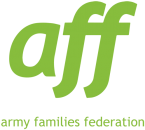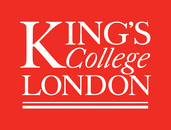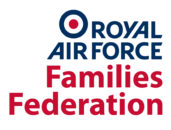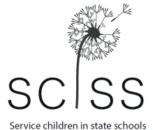Board Profile: An Interview With Our Newest Member, Student Representative - Kieron Allen
Posted in Views by Georgina Abbott (SCiP Alliance Officer)
I had a chat with Kieron Allen who is in his first year of BA (Hons) Primary Education with QTS at Winchester University. He is preparing to meet our SCiP Alliance Board in his new role as Student Representative. Kieron kindly shared some of his experiences as a Service child.
- Can you explain a little about your Service family background?
My father is in the army in the Adjutant General's Corps, he joined in 1997 and he is due to finish at the end of this year after 24 years of service. My brother and I were both born in Salisbury where we stayed for a few years before moving to Germany. We moved every few years until we made the family decision to settle back to Southampton in 2015 to care for elderly relatives and focus on further education. I think education was a major factor in our return to the UK.
- How many schools did you attend as a Service child?
I think I attended 7 schools. I went to preschool in Salisbury, Reception class in an MOD school in Germany. We then came back to Emsworth and I attended a civilian primary school on Thorney Island army base. We moved to Cyprus after that where I finished my primary school years at an MOD school. After that we went to Germany and I started secondary school at an MOD school. When we returned to the UK for the final time I finished secondary school in Southampton and progressed to college. I am now at university in Winchester.
- Did you notice a difference between MOD and civilian schools?
All the MOD schools were English speaking. There was a real mix of nationalities within the schools, but we all had a lot in common so mixed well. The school celebrated our backgrounds, for instance there were a lot of Fijians in the army and they would celebrate Fijian day at school.
At school in Cyprus I can remember the gym hall was filled with stands representing different countries and we could try different types of food from each place.
I found the teachers in the MOD schools to be more understanding. They understand that your Mum or Dad might be away. The kids are all in the same boat, and support each other. My secondary school didn’t understand my needs as much, I don’t think they even knew when my Dad was deployed to Kenya. When I was at college I remember being shocked they didn’t acknowledge the silence for Remembrance Day, everyone thought it was a fire alarm and just carried on. I didn’t know anyone else from a Service family there.
I went to a civilian school in Marchwood for teacher training, I noticed they had very good support for Service children. They had a designated person to go to for support.
- Do you feel that moving schools had an impact on your education and experience?
My Dad is in the AGC and I think that meant we had more choice over where we moved to. Most of the time we started school at the regular time in at the beginning of term. He wanted to make sure that we were stable and secure for GCSE time so that’s when we moved back to Southampton.
- What support – if any – did you receive to help you transition to a new school?
When I moved from one MOD school to another they would give you documents to show where you were with learning and then you take them to the new school to put on their system. To settle into the school, we had a 1-2-1 teacher to support us for the first few weeks. We also had a student buddy to help show us the way around school. We’d have each other to talk to and we supported one another, teachers would also be aware of whose family was deployed so they would check on you.
- You’ve lived in different countries, what effect do you think this has had on you?
I’ve lived in Germany and Cyprus, as well as the UK. I’ve enjoyed gaining an insight into different cultures, not just of those countries. The MOD interacted well with local communities. Locals would organise events for the military families to learn about the area. Also the MOD reserved jobs on the camps for locals, so in Cyprus the guards or the florist might have been local Cypriots and that made us feel more connected with the community.
I think moving about and adapting to new schools and homes has made me more resilient. I can recover quickly from difficult situations I think as a result of my childhood. I think I’m more disciplined than some of my peers. In my view at school Service children were more likely to be well behaved and show teachers respect when compared with civilian students.
- How did you find living on an Army barracks?
I loved the sense of community on the barracks. In Cyrus it was all inclusive, the school, the supermarket, swimming pool was all there on our doorstep. We didn’t leave the barracks much. It was all very close knit – your neighbour could be your teacher. It felt really safe to go out and play there and we could just wander freely into our friends’ houses and gardens to play because everyone knew each other. I think I had much more freedom there than I would have done at the age of 7 or 8yrs old in the UK.
- Is there anything you wished civilians understood about being a Service child?
I wish that civilian children were educated more on what military life is like. So then it might be easier for Service children to interact with them. It might make it easier to be friends. I found it much harder to make friends at secondary school, because they have all been together for years and had their own groups. MOD schools made it much easier to find friends. We were used to friends coming and going and always welcomed new children.
- Now that you are settled, what do you miss most about military life?
I miss the community feel of everyone being around you. I saw the camp as a city with everything you needed all around you, all the time. I miss the schools, I wish I could have brought them with me! It’s sad to think now that some of these schools no longer exist. The MOD has withdrawn from most of Germany and so my old school in Gutersloh is now derelict.
- You’re training to be a teacher – what made you pursue this career?
I think my various school experiences definitely triggered my interest in teaching. I experienced various teaching qualities, and observed how the different teachers work.
My main ambition is to move back to Cyprus and work in an MOD school and give back to the community of Service children.
- What advice would you have for Service children who are thinking about higher education?
Do your research on what you want to achieve and then work backwards! Decide what you want to do and then figure out the courses that you need to do that. Aim high, don’t undersell yourself. Support and help is out there if you look for it and ask for it. Speak to your parents about your hopes for the future then they can help you to find the right support to access the education you require.
Sarah-Louise Collins, Chair of the SCiP Alliance Board joins me in welcoming our new Student Representative, saying:
"As an Alliance, we endeavour to ensure we put the Service Child at the centre of all our activity and as such we are delighted to be able to welcome Kieron onto the Board. We look forward to the valuable contributions his voice can make to the governance of the SCiP Alliance as we continue to consider how we can further enhance Service Child voice in other areas of practice, policy and research."

































